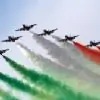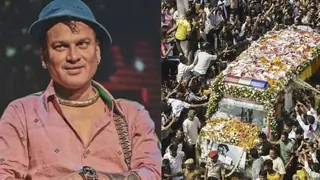It was a rainy July evening ten years ago. A motley group of villagers from Sutia gathered at the local market to protest the spate of rapes that had left the area terrorized. They were angry but terrified of reprisal. And they did not know if anyone would join the fight. Speaking in hushed tones, they distributed leaflets asking people to join the protest. Some took the leaflets hesitantly, cast a furtive glance, and threw them away. A hired microphone lay silent in a corner.
Suddenly, a young man walked boldly through the anxious crowd and grabbed the microphone. He stood tall on a wooden stool and started speaking. "If we can't protect our daughters, sisters, wives and mothers, then we shouldn't be living in a civilized society. If we lack the courage to take on the rapists, we deserve more severe punishment than they do... So come and join us to protect the honour of our women," Barun Biswas pleaded passionately to rapturous applause from the crowd.
The seeds of a movement - unparalleled in the country - were sown. And that very moment, Barun was marked for death.
In the two years running up to the meeting at Sutia market, the locality had been ravaged by a gang of rapists - led by Sushanta Choudhury - who used sexual torture as a weapon of dominance. Officially, there had been 33 rapes and a dozen murders but the actual number of rapes was many times more because victims were too terrified to complain. Anyone who even murmured in protest was gangraped for weeks. Worse, the gang sometimes raped every woman in the family, regardless of age, to teach a lesson. Apart from the half-a-dozen villages in the area, no one knew about the terror. And the police did not quite bother.
That was till Barun Biswas broke the fear barrier that rainy evening and sparked a spontaneous protest. He formed the Pratibadi Mancha and waded into battle with a copy of Ramakrishna Paramhansa's works and no hate in his heart. When Sushanta was eventually arrested, thanks to Barun's crusade, the young idealist handed the gangster a book of Ramakrishna and advised: "Jele boshe poris (read it in jail)."
Sushanta and four of his gang are serving life terms in jail. It doesn't seem he read the book because police suspect him of plotting Barun's murder from behind bars.
Barun not only brought justice for the raped, he also rehabilitated them socially. Though it made him a hero in Sutia, his commitment never changed. He helped poor boys study, bought medicines for the elderly, coached job-seekers, and even campaigned for the dredging of a canal to prevent Sutia and nearby areas from flooding.
"Barun knew his life was under threat but he didn't bother. He always had a daring streak. He looked like the boy next door but believe me, he had nerves of steel. He was scared of no one and he loved helping people, often at the cost of his own comfort. Barun kept nothing for himself, other than his bed which he would give away to the students he helped. A year ago, he finally gave it to a neighbour and would sleep on plastic sheets. Even the man who pointed him out to the assassins at Gobardanga station had received rice from him a week ago," said Asit Biswas, Barun's elder brother.
He had scores of visitors every morning, so many, in fact, that had to build a kutcha road in his backyard to avoid crowding at the front door.
There were hints of this selfless, bold nature when Barun, the son of a landless farmer, was growing up. In school, he was never afraid to speak out, even against teachers. He was polite and very disciplined, say his teachers. Once, when in Class IX he protested against a decision of the headmaster in Panchpota Bharadanga High School. He did his masters in Bengali and then a Bed and even cleared the state civil services exam but his heart was set on social work.
Chucking a bureaucrat's cushy life, he settled for a teacher's job. And he loved it. More so because it gave him ample time to continue with his social work. "Nothing pleased him more than helping people. He did it passionately, out of genuine love for the people," said Arun Biswas, his brother.
It was probably born out of the immense hardship that he and his four siblings went through. His parents Jagadish and Geeta had migrated from Faridpur in Bangladesh after the 1971 war with what they had on their backs. Jagadish worked as a labourer during the day and by singing for a theatre group at night. Barun and his siblings understood that their father slogged so that they could continue in school. "We imbibed the love for hard work from our parents," said Asit, adding that they could not afford even a quilt in winter. "We would chop off the skin of banana trees and tie it to our legs to protect from the cold," he said.






























